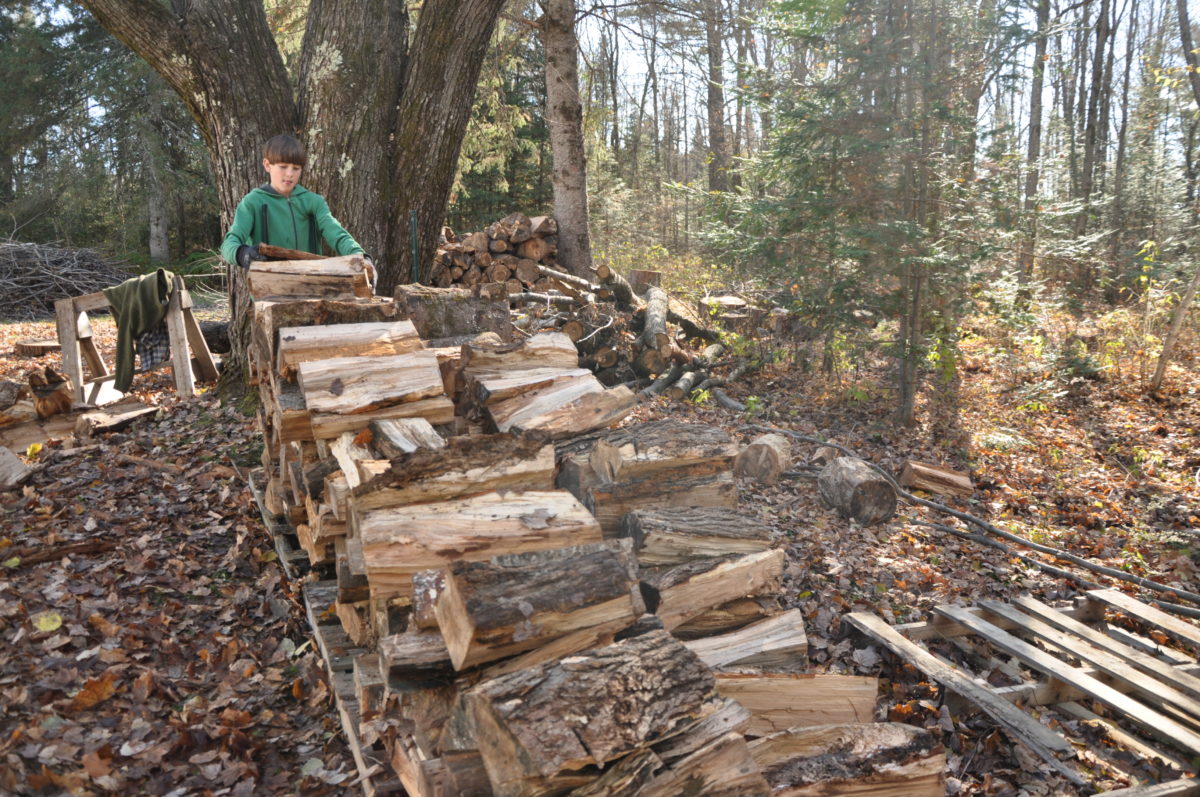It’s wood stacking time in the Northwoods. Actually, it’s always wood stacking time, but with our first snow dusting behind us and more snow in the distant forecast, time for easy outside work is short.
And this sets me to thinking about wood piles. And to asking this question: what does a wood pile have to do with God’s character, and ours?
Much, actually. In 1 John old Apostle John writes to the churches under his care to assure those who believe in Jesus that they belong to God. John poses three cycles of three tests each: the Test of Obedience, the Test of Love, the Test of Right Belief about Jesus. Moving in to the second cycle in 2.28-3.10, John’s Test of Obedience is all about righteous living. Righteous living shows our family resemblance to Jesus and results in confidence before God.
And that’s where the wood pile comes in. “Righteousness” is a hefty theological term that means “just”, “upright”, “right standing”, or my favorite gloss from the world of carpentry, “squared up”. A good wood pile is “righteous” in that it’s squared up to gravity and the earth’s core. A really good wood stands up all by itself. This gives us a start at understanding something important about God. He is righteous to Himself, requiring no other justification. Jesus is righteous with the perfect righteousness of the Father. And (praise God!) we take on the family trait of righteousness when we believe in Jesus, because we receive Jesus’ righteousness. And, it turns out, the increasing practice of righteousness becomes the family trait that identifies us, to ourself and others, as those who belong to God.
John’s discourse in 2.28-3.10 ties this family resemblance of rightness to Jesus’ two comings. Christ’s second coming will make complete our family resemblance as righteous children of God (2.28-3.3). As it turns out, this doesn’t take place all at once, but my righteousness will be complete at Jesus’ return. Look at the sequence in 3.1-3:
The world rejected Jesus when He died for us because sinful humanity (including us) didn’t recognize the family resemblance of God’s righteousness in Jesus.
We believed in Jesus and took on the family resemblance.
Like imagining the emerging features of a baby, we can only imagine what it will be like to be fully complete in righteousness at Jesus’ coming.
We will be changed at Christ’s coming to be fully and morally righteous, like Jesus.
Now, we hope in Christ and are made pure as we grow in assurance.
At the same time, Christ’s first coming made certain our family resemblance as righteous children of God (3.4-10). These verses include a double pattern that emphasizes the seriousness of sin (:4, 8a), the purpose of Christ’s appearing (:5, 8b) and the moral conclusion. Essentially, sin is rebellion against God. And, it’s serious. Whoever makes a practice of sinning is of the devil … But, Jesus came to destroy the works of the devil with the result that, increasingly, if we’re believing in Jesus, we will not sin but be squared up with God. No one born of God makes a practice of sinning, for God’s seed abides in him, and he cannot keep on sinning because he has been born of God (:9).
So, if you and I belong to God, we’re righteous—with the righteousness of Christ that is God’s rightness. And, we will be growing in obedience to God in a way that will culminate at Christ’s return.
Righteous living shows our family resemblance to Jesus and results in confidence before God.
Take a minute to answer some questions from this passage.
The most obvious concern many people have from reading this passage is about whether we should expect to reach a state of sinless perfection in this life. What do you think John means in verse 6 when (twice) he says “keeps on sinning”? And in verse 9 when he talks about “make a practice of sin”? (This is the ESV translation).
What kind of sin is John talking about in this passage? Is John, in these verses from the last question, talking about habitual sin without repentance? How would that be different than occasional sins for which believer’s seek forgiveness? (1 John 1.8, 10; 2.1).
Martin Luther talked about “sinning boldly”. He was referring to the way true believer’s in Jesus have confidence in God, despite their imperfect practical righteousness. What do you think this looks like for the growing Christian?
How does our growth in righteousness cause us to look forward to Jesus’ return? And, what does it mean when, in 2.29, the text says, ” … we … may not shrink from him in shame at his coming”?


